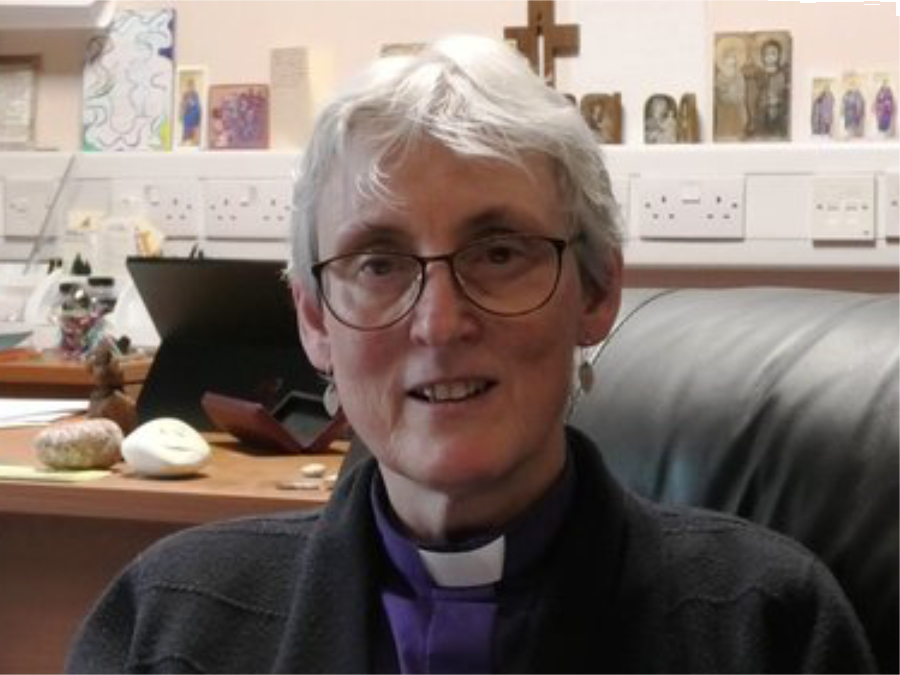
Would you trust a Tory?
June 23, 2021
Martyn Percy: The Great Leap Forward (Part One) The New Politics of Ecclesionomics for the Church of England
July 5, 2021My approach to this question is that of a priest and psychotherapist. I cannot ignore the developing nature of my faith and tradition. Neither can I ignore what psychology has taught us so far about the human condition. “Are there limits to our tolerance”? My starting point is something here needs to be understood.
This question arises out of experience. Within the Church some people face destructive behaviour, perhaps the abuse of power by clergy, which can be experienced as exclusion. I know of colleagues working with clergy whose views are seen as conservative; they believe in creationism and largely ignore issues surrounding sexuality. What do we do when faced with someone whose views conflict with our own? What do we do when power is exercised with a sense of detachment and superiority by those who seem to be isolated from other peoples’ reality? Is this a corruption of authority?
How does a society or its institutions, such as the Church, listen and respond to thinking and ideas that challenge its traditional core beliefs? This big question has resonance for religious people who think they have God on their side. It can also be applied to countries with totalitarian regimes, such as China, Russia, Myanmar, Brazil etc., but also to long standing conflicts, such as between Palestine and Israel. These are they who see their way as correct and silence dissent.
Many inside, but also some outside, the church say it is prejudiced, patriarchal and even immoral. So, we have a conflict between prejudice and strongly held belief. There is a question here for apologetics (that part of theology which is concerned with how we can speak of God, especially to a world which is troubled by religion). For example, the views about same sex relationships, sex before marriage and sexuality conflict with widely held different understandings, especially amongst younger people.
It is the view of many that conservative beliefs and practices can be damaging and dehumanising. Peter Vardy in his much-neglected book Good and Bad Religion, argues such views need to be opposed if we are to preserve precious and important religious insights from being discredited. They make it difficult for the Church to get a hearing for its Gospel.
We lose the ability to convince, steadily losing force and credibility. Some see the Church as preaching one Gospel and living another. Whilst many, often in good faith, think they are furthering the work of the Church, they are actually increasing the atmosphere fear, stress, power, control and prejudice surrounding these institutions. The end result is the Church is not taken seriously. To stand up against views identified as bad religion brings risks of being ostracised and reviled by those within.
The condemnation of any sexual behaviour outside of marriage, whilst proclaiming that all are welcome, loved and cared for, seems to me to a self-centred position which lacks credibility. I want to say that love and pastoral care are more than one person’s attitude or feelings towards another. Love and pastoral care must involve the other person experiencing love and care through the presence and actions of someone fully present to them; a mutuality of relationship which has power and meaning if it is to keep important things alive in both and awaken them to new life.
This quality of living brings energy and impetus to think and speak. It can be seen as the Spirit of God moving both towards a divine fulfilment. I have brought this into the one-to-one situation deliberately – for this is what is missing in the Church. I have in mind (and cannot get it out of my mind) that so many survivors of abuse at the hands of a particular bishop have not experienced any such mutuality of understanding from church leaders and bishops – the people who are supposed to be our chief pastors. None have been held to account for that failure.
If power and prejudice are at play here we might consider how to understand them.
Rollo May, American existentialist philosopher, and psychotherapist defined power as “the ability to cause or prevent change”.
Power is easier than love; indeed it is easier to control people than to love them. Love cannot be planned or managed, it can only be nurtured by returning to its source, renewed and valued. A prerequisite for loving is to have a sense of incompleteness – vulnerability, openness to being loved, of growing, changing and being alive. Those locked into certainty may find this challenging.
It might be worth looking at prejudice for a moment. Although published in 1954 and set against the backdrop of black and white relationships in the USA, I believe that the psychologist Gordon Allport’s study of prejudice, its origins and nature still has something to offer us today.
He defines prejudice as:
“An antipathy based upon a faulty and inflexible generalisation, felt or expressed. It may be directed towards a group as whole or towards an individual because they are a part of that group. The effect is to put that person at some disadvantage.”
He also points out that it fulfils a specific irrational function for those who hold it.
What is it that lies underneath these different expressions of faith, belief, and behaviour? What is it that determines the kind of religion or religious expression that people are attracted to?
It has long been recognised that religion serves different functions and in many different ways. It can be used as a way of coping with some of life’s more difficult problems as a source of relief, comfort, and solace. It can provide a sense of meaning and purpose in life; create an experience of community, connection with other human beings and of being cared for; be a source of intimacy; for some, help them to grow and mature as human beings. It can also be a means of searching for God. Less recognised, religion can also be used as a defence against feelings and thoughts which people would rather not have. Anxiety, fear, doubt, sexual attraction, the effects of previous traumatic experiences and relationships are examples of this. The uncertainty, anxiety, and sense of chaos in human life which follows can drive people to seek a certainty which reduces these thoughts and feelings and makes them more manageable. However, any form of denial itself creates inner stress and anxiety.
A rigid religious belief system with patriarchal and clerical structures in which nothing seems to change can be extremely attractive, though this attraction may not always be a conscious one. It is meeting a need and, in this sense, can be seen as self-centred. I am not merely being critical of this approach, rather trying to be descriptive and to understand a particular form of religious attachment. Such a belief system can create a world which is safe, in which there is nothing new, no surprises and no human growth and development. Accepting the Bible as an inerrant manual offers an easy certainty associated with black and white thinking. However, this approach to faith does not address the underlying anxiety which often reveals itself in unhealthy attitudes towards those who do not share their views. For example, those for whom particular forms of religious faith are fundamental, on which they have staked everything, their life, beliefs, theological understanding, which becomes part of their personal identity and sense of self, face the most serious threat to their personhood when what is most precious is challenged. This needs to be taken seriously, for quite often the survival of the self is at stake. It is fully understandable that they fight hard to preserve the status quo.
The consequences of being inculturated and attached to such a belief- system are profoundly serious for those concerned. It can cause them to remain anxious, dependent, and vulnerable. It can lead to the very human capacity to create insiders and outsiders. Those wanting to convince us of the rightness of their faith are mistrustful of those who have different understandings. They have difficulty accepting other peoples’ reality. To feel comfortable and reduce anxiety they need others to believe the same and to be just like them. When the values of such religious groups are internalised, they become the individual’s conscience. In this sense appeal to conscience is a way of putting matters beyond all doubt or discussion. Religious tradition and ritual and a fundamentalist view of the Bible can become a substitute for the real self, their own inner voice, and remove a capacity for dialogue. We are here dealing with the concept of religious addiction.
People whose life experience has taught them not to trust themselves are especially vulnerable to a religion of certainties, espoused by figures in authority, and to ritual which at its best can create an altered state of consciousness open to the transcendent. Such a form of religion runs the risk of making people dependent, vulnerable to manipulation and control, keeping them in a state of anxiety. Some church families can continue to discourage them from trusting their own reality.
Theological certainty is no substitute for psychological maturity. This is not new. As early as the 4th Century Evagrius was one of a number who recognised that a centralised and increasingly controlling Church risked delusion and deception as a way of avoiding the reality of the living God. They saw that the dynamic was to be provisional, stripping away the comfortable, open to what was to come. For people to be compassionate requires them to stay with an experience of doubt; a felt safe uncertainty which encourages them to keep going.
We need here to distinguish between immature and mature forms of religious faith, whilst recognising that we are not all at the same stage of faith. We all need a form of belief and worship with which we are comfortable. We all need some certainty, constants we can trust at every stage of life. We need to be careful that they don’t take over and become controlling needs, stopping us growing. They need to be tentative.
The difficulty comes when people think they have arrived and are certain that what they have found is all there is. This is the source of tension within the Church, which is not easily resolved.
All of this can apply to conservative evangelicals, Anglo Catholics, liberals etc. and even us!!
Gordon Allport Psychologist in his study The Individual and his Religion (1950) suggest three criteria for mature personality:
- A variety of interests concerned with values and objects beyond biological impulses and desires.
- The ability to be reflective and insightful about one’s own life. Able to incorporate others’ views of oneself, with a sense of humour, not taking oneself too seriously.
- A unifying philosophy of life, not necessarily religious, nor spoken or complete, giving direction and coherence to life.
These provide avenues for development and growth
- Widening interests
- Detachment and insight
- Integration.
Mature religion/ faith moderates and controls impulse, fear, wishes etc. and directs them towards a goal no longer determined by self-interest.
Mature religion seeks to work with a scientific era whilst living in a tradition which arises from a pre-scientific, pre-technological and pre- psychological era.
In that context belief can be held tentatively until it is confirmed or moves us toward a more valid belief. Certainty is impossible but a mixture of probability, faith and love gives enough certitude to guide one’s life. Doubt has its place.
Do we try to love along with those we disagree with? Do we ask for opportunities for dialogue and a sharing of other points of view? Do we call out bad religion as Peter Vardy suggests? We might consider in passing Matt. 23:1-12, Jesus here is critical of religion which has lost its capacity for love in favour of imposing heavy burdens. He is calling out bad religion. The prophets likewise called for a change of heart and return to a loving God and disposition. Are their limits to our tolerance? Each must decide for themselves.
Revd. Dr. John Prysor-Jones





2 Comments
Wonderful article. Thank you. I hope sme will use it as they formulste how to emerge safely and creatively from Lockdown
Thank you, John, for your insightful article – I’ve read it twice (having copied it into a Word document so that I could enlarge the font size – not easy to read on the website) … much food for thought and probably a lot of unpacking potential – ( a book maybe?) – sometimes I find it extremely hard to be tolerant, but sometimes it’s just right not to be! Wisdom required to know the difference, of course!